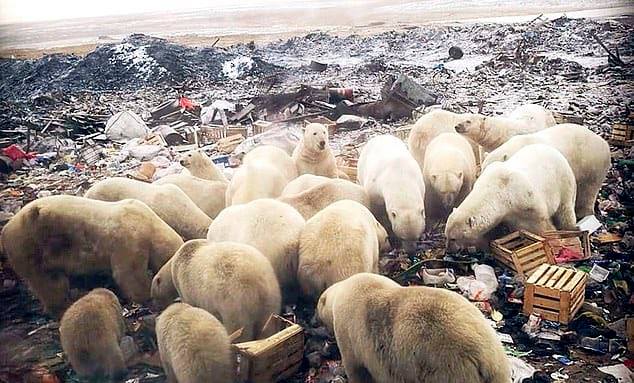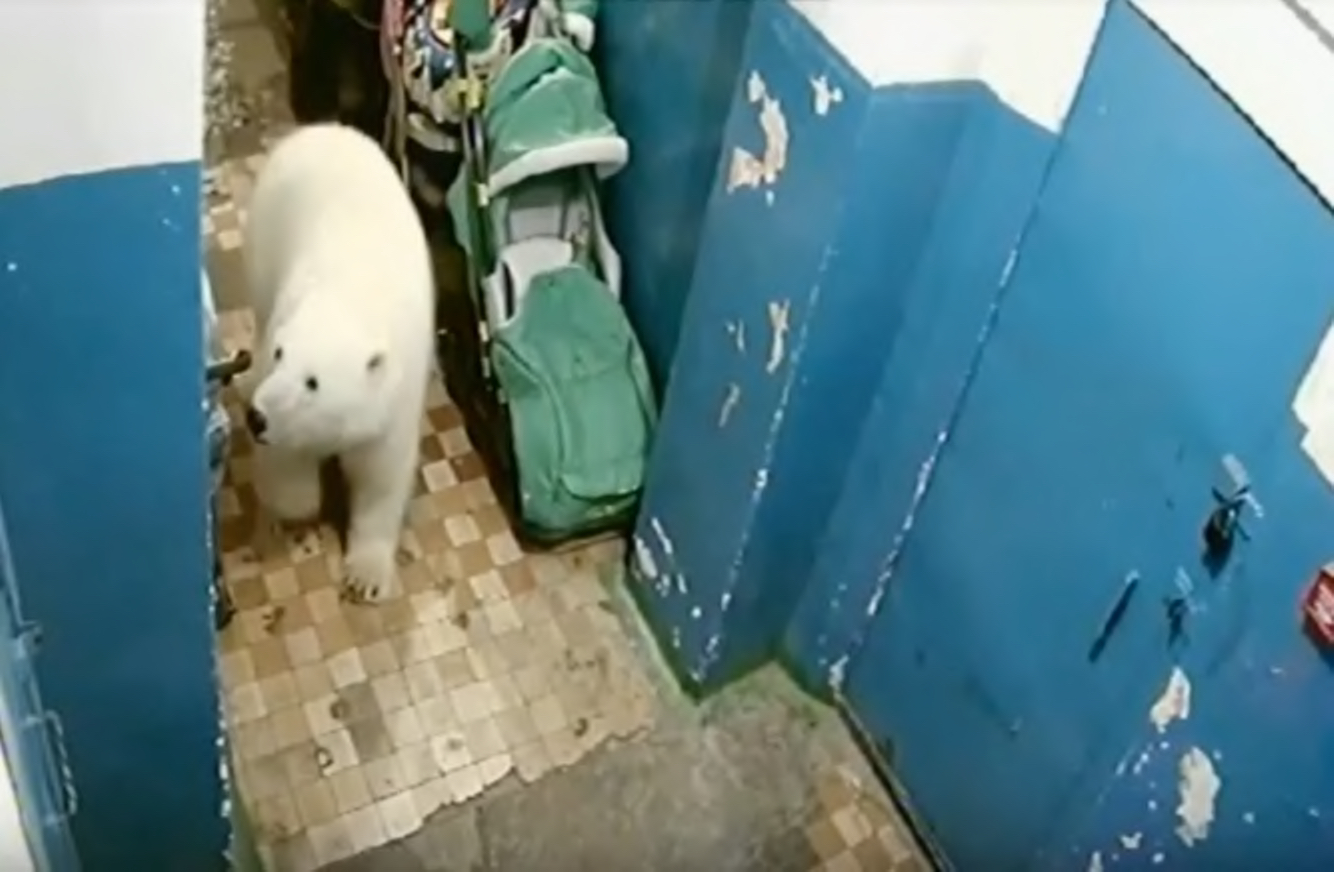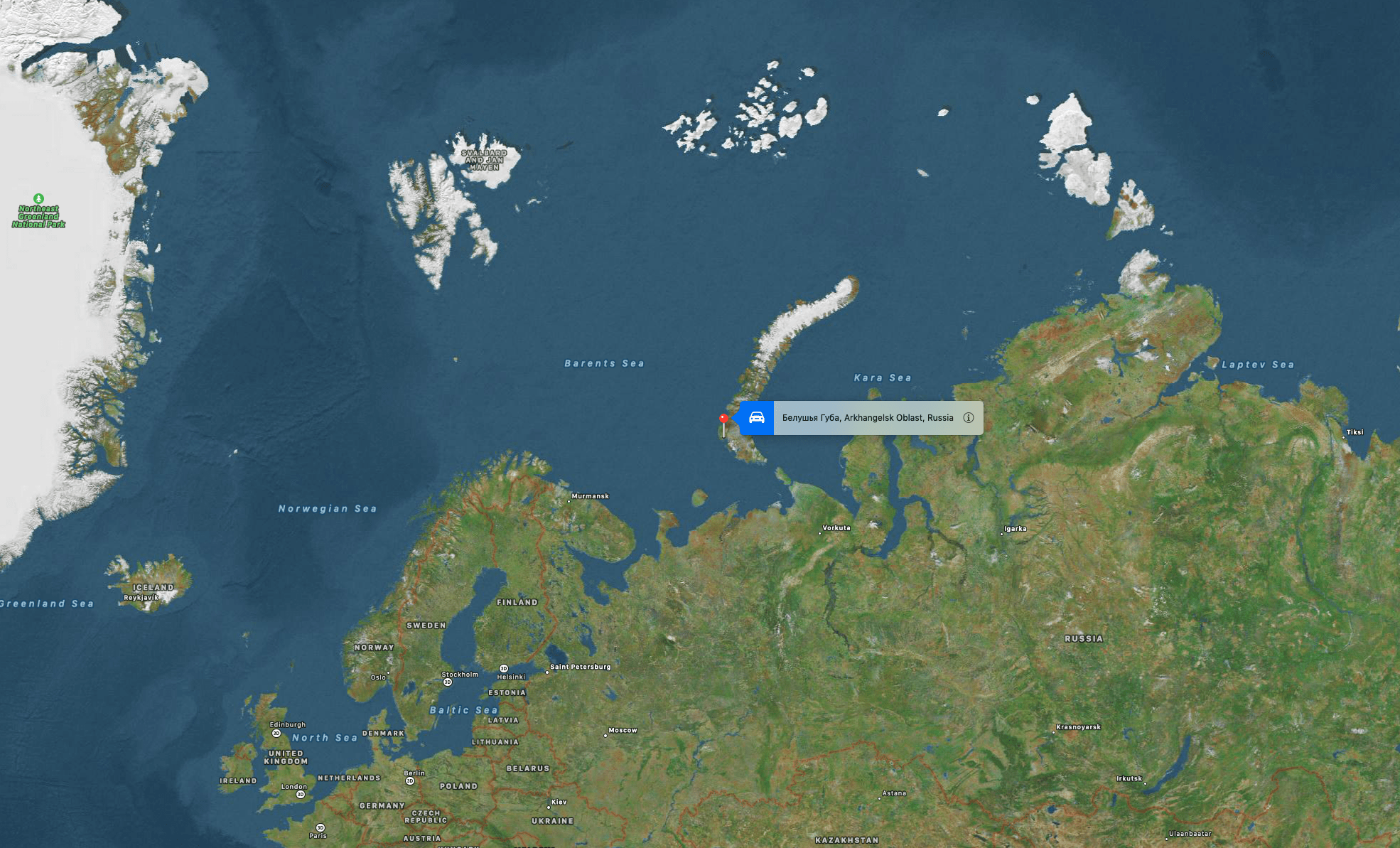
Belushya Guba, a hamlet in the Novaya Zemlya islands, in the Russian Arctic, has seen dozens of polar bears invade homes and businesses in an apparent search for food. As climate change wreaks havoc on the bears’ normal habitat, they’ve increasingly entered human habitations to scavenge for things to eat, reports the Adventure Journal.
- You might also like: 9 Amazing Facts About Polar Bears
Fences have risen around kindergartens. Special vehicles transport military personnel to their work sites. Residents of the island settlement are afraid to leave their homes.

Police have tried scaring off the bears in patrols, but the animals have grown bold and lost whatever fear they had of people. Police are heavily guarding schools and businesses and the Russian government has declared a state of emergency in the area.
“I’ve been on Novaya Zemlya since 1983,” said an official in a press release. “There’s never been such a mass invasion of polar bears.” Moscow is reportedly sending investigators to see what else they can do.
Polar bears are typically born on land but live mostly on sea ice, where they hunt and feed on seals. But as Arctic ice thins, an occurrence linked to the acceleration of climate change, the animals move ashore to scavenge, sometimes coming into contact with human populations.

At least 52 bears were massed near Belushya Guba and they could be selectively slaughtered if Russian authorities can’t figure out another way to keep them from menacing the residents of the remote island outpost, where they began to collect in December 2018. Warning of the “mass invasion of polar bears in residential areas,” local officials vowed action in response to “numerous oral and written complaints demanding to ensure safety in the settlement.”
“The people are scared,” regional officials reported in a statement. “They are frightened to leave homes and their daily routines are broken. Parents are afraid to let the children go to school or kindergarten.”
Residents are barred from hunting the animals, which are classified as a vulnerable species because of the “ongoing and potential loss of their sea-ice habitat resulting from climate change,” according to the World Wildlife Fund. The International Union for Conservation of Nature estimates that there are 22,000 to 31,000 polar bears worldwide.